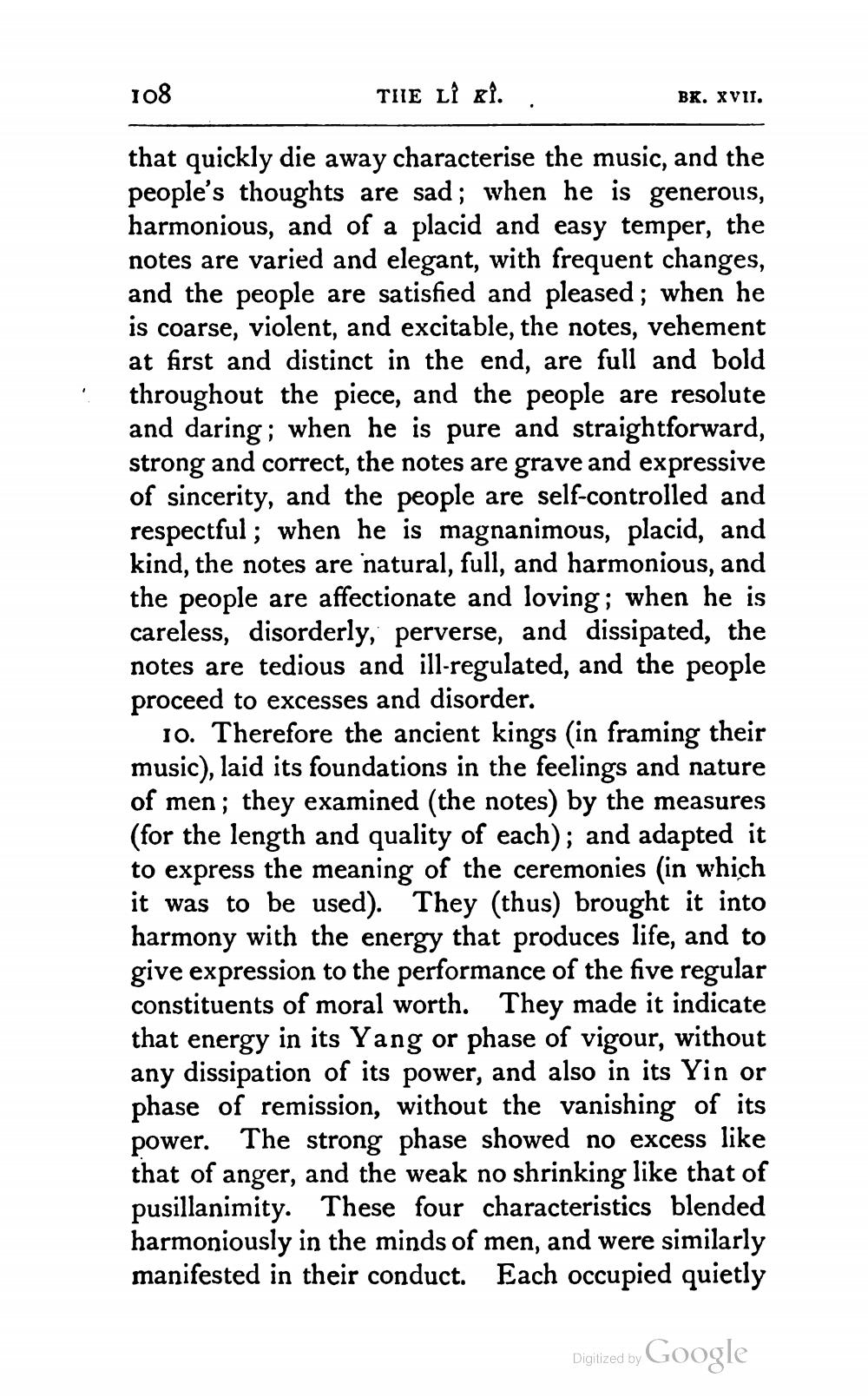________________
108
THE LÎ xi.
BR. XVII.
that quickly die away characterise the music, and the people's thoughts are sad; when he is generous, harmonious, and of a placid and easy temper, the notes are varied and elegant, with frequent changes, and the people are satisfied and pleased; when he is coarse, violent, and excitable, the notes, vehement at first and distinct in the end, are full and bold throughout the piece, and the people are resolute and daring; when he is pure and straightforward, strong and correct, the notes are grave and expressive of sincerity, and the people are self-controlled and respectful; when he is magnanimous, placid, and kind, the notes are natural, full, and harmonious, and the people are affectionate and loving; when he is careless, disorderly, perverse, and dissipated, the notes are tedious and ill-regulated, and the people proceed to excesses and disorder.
10. Therefore the ancient kings (in framing their music), laid its foundations in the feelings and nature of men; they examined (the notes) by the measures (for the length and quality of each); and adapted it to express the meaning of the ceremonies (in which it was to be used). They (thus) brought it into harmony with the energy that produces life, and to give expression to the performance of the five regular constituents of moral worth. They made it indicate that energy in its Yang or phase of vigour, without any dissipation of its power, and also in its Yin or phase of remission, without the vanishing of its power. The strong phase showed no excess like that of anger, and the weak no shrinking like that of pusillanimity. These four characteristics blended harmoniously in the minds of men, and were similarly manifested in their conduct. Each occupied quietly
Digitized by Google




